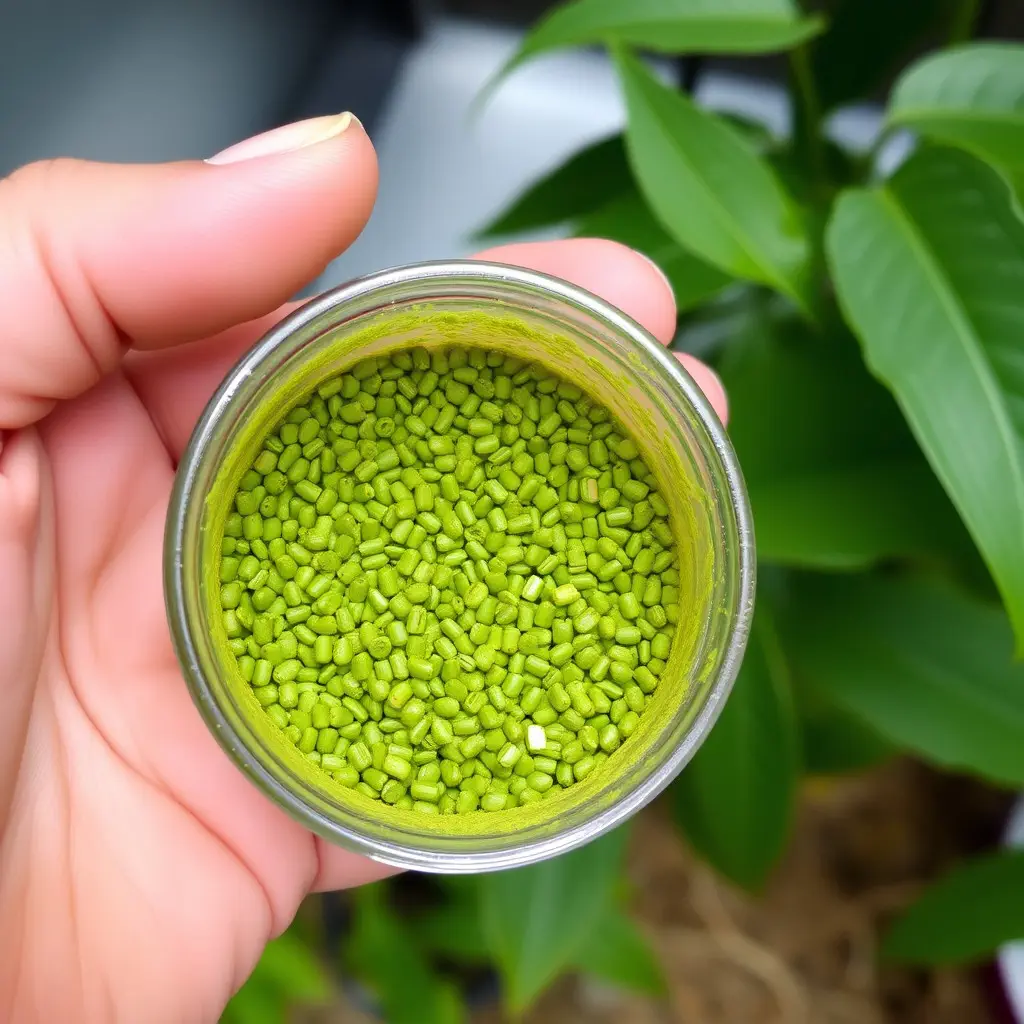Kratom, a natural extract from Southeast Asia, has garnered attention for its potential to enhance cognitive function due to its alkaloids like mitragynine and 7-hydroxymitragynine. These compounds may activate brain receptors, improving mental acuity, focus, and concentration, as suggested by both user experiences and emerging scientific research. The plant's influence on neurotransmitters such as dopamine, norepinephrine, and acetylcholine could play a role in memory enhancement and attention improvement. Preclinical studies indicate that kratom might also have anti-inflammatory effects that protect neural cells from oxidative stress, potentially benefiting cognitive health. However, it's crucial to approach kratom with caution due to its legal status, the need for further scientific investigation, and the risk of adverse effects and drug interactions. Prospective users should be well-informed about their local laws, consult with healthcare professionals, and start with low doses to understand personal reactions before considering any increase in intake. The choice of kratom strain, such as Maeng Da, Bali, or Thai, may also influence its cognitive benefits. It's essential to use kratom responsibly and be aware of the importance of professional medical guidance when considering it for cognitive enhancement.
Exploring the intricate relationship between natural supplements and brain health, this article sheds light on how Kratom can play a pivotal role in enhancing cognitive function. By delving into the mechanisms that underpin its memory-boosting and focus-sharpening properties, we uncover the potential of Kratom to unlock cognitive prowess. Subsequently, we navigate the nuances of safe and effective Kratom use, guiding readers through various strains and their implications for cognitive well-being. Join us as we demystify the connection between Kratom and improved mental acuity, offering insights that are both informative and practical for those interested in augmenting their brain health.
- Unlocking Cognitive Potential with Kratom: A Deep Dive into Brain Health Benefits
- The Science Behind Kratom's Role in Enhancing Memory and Focus
- Navigating Kratom Use for Improved Cognitive Function: Safety, Strains, and Recommendations
Unlocking Cognitive Potential with Kratom: A Deep Dive into Brain Health Benefits

Kratom, a plant native to Southeast Asia, has garnered attention in various circles for its potential impact on cognitive function improvement. Proponents suggest that certain strains of kratom contain alkaloids, such as mitragynine and 7-hydroxymitragynine, which may stimulate the brain and enhance mental clarity. These compounds are believed to interact with the body’s opioid receptors as well as other neurotransmitter systems, potentially leading to improved focus, concentration, and overall cognitive performance.
Research into kratom’s effects on brain health is ongoing, with preliminary studies indicating that it may offer benefits for individuals looking to enhance their cognitive potential. The implications of such findings could be significant, particularly for those experiencing age-related cognitive decline or seeking to optimize mental faculties. However, it is crucial to approach the use of kratom with caution and to consider its regulatory status, as it remains a controversial and legally complex substance in many regions. Users should also be aware of the potential side effects and interactions with other substances, and it is advisable to consult with healthcare professionals before incorporating kratom into any health regimen aimed at cognitive function improvement.
The Science Behind Kratom's Role in Enhancing Memory and Focus

Kratom, a plant from Southeast Asia, has garnered attention in various circles for its potential impact on cognitive function, particularly memory and focus. The mechanisms behind kratom’s effects are multifaceted, involving its interaction with the brain’s neurotransmitter systems. Alkaloids present in kratom leaves, such as mitragynine and 7-hydroxymitragynine, are believed to influence the release of neurotransmitters like dopamine and norepinephrine, which play crucial roles in attention and cognitive processing. Preclinical studies suggest that these alkaloids may enhance acetylcholine levels, a neurotransmitter essential for memory formation and retrieval, thereby potentially improving recall and concentration.
Furthermore, kratom’s influence on the opioid receptors in the brain might contribute to its cognitive benefits. By modulating these receptors, it could provide a calming effect that reduces distractions and allows for better focus. The anti-inflammatory properties of kratom may also protect neural cells from oxidative stress, which is known to impair cognitive function over time. Users reporting heightened mental clarity and the ability to concentrate for extended periods without fatigue further anecdotal evidence supporting kratom’s role in cognitive enhancement. However, it is imperative to approach such claims with caution, as research is ongoing, and more human studies are needed to fully understand the scope of its effects on brain health and cognition.
Navigating Kratom Use for Improved Cognitive Function: Safety, Strains, and Recommendations

Kratom, a botanical derived from the leaves of Mitragyna speciosa, has garnered attention for its potential effects on cognitive function. Users report that certain strains of kratom may enhance mental clarity, focus, and overall brain performance. It’s important to approach kratom use with caution due to its complex interactions with neurotransmitters in the brain. The alkaloids present in kratom leaves, particularly mitragynine and 7-hydroxymitragynine, are believed to influence the activity of these neurotransmitters, which could lead to improved cognitive function.
When considering kratom for cognitive enhancement, safety is paramount. Users should be aware of the legal status of kratom in their jurisdiction and adhere to recommended dosages to minimize risks. The choice of kratom strain also plays a crucial role; strains such as Maeng Da, Bali, and Thai are often favored for their cognitive-boosting properties. It’s advisable to start with lower doses to assess individual sensitivity and effects before considering higher dosages. Additionally, combining kratom with other nootropic substances or supplements should be done with care and ideally under professional guidance due to potential synergistic or adverse interactions. Prospective users should consult with healthcare providers, especially if they have pre-existing health conditions or are taking medications that could interact with kratom. With a thoughtful and informed approach to kratom use, individuals may find it to be a valuable tool in supporting their cognitive well-being.
Kratom’s potential in promoting cognitive function improvement has been a compelling subject of discussion. The article has explored how this botanical substance may contribute to enhanced memory and focus, as well as its broader implications for overall brain health and well-being. By examining the scientific evidence on Kratom’s effects and offering practical guidance on its use, readers are now equipped with a deeper understanding of how Kratom might be leveraged safely and effectively for cognitive enhancement. As research continues to evolve in this realm, it is clear that Kratom could hold promise as a natural aid in maintaining optimal brain function.






